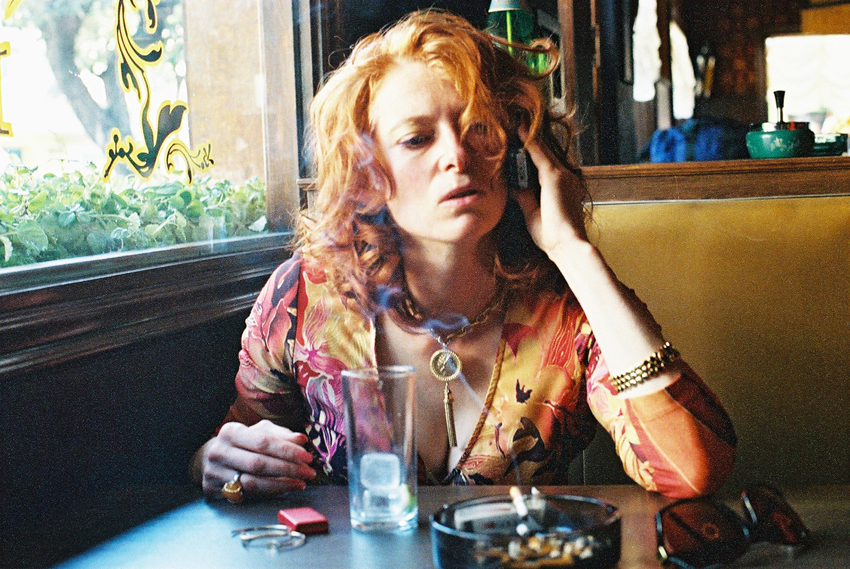Tilda Swinton: Wine and Poetry

Â
Â
“I always had a fantasy,” Tilda Swinton says. “I’d always wanted to play an alcoholic who was energetic and fancy-filled and fun, because most of the drunks I know…” She pauses, “And it so happened that [Erick] Zonca came with this character. It was pretty close to the person I’d been visualizing.”
Â
The woman dominating every scene of Zonca’s new film, Julia, released Friday, is a foul-mouthed, hard-partying force, a dynamic fuckup in heels. She lets it all hang out, literally, and she’s a major departure from the poised, icy martinets for which the Cambridge-educated Swinton is better known. (The wicked queen of Narnia and the conniving lawyer in Michael Clayton, a role that won her an Oscar, come to mind.) As Swinton puts it, “You work a muscle, and you want to work another muscle.”
Â
In some ways, Julia is more traditionally feminine than the androgynous control freaks Swinton often plays. Of course, there’s nothing traditionally feminine about her fleeing to Mexico with a boy she’s abducted for ransom. “She’s completely disconnected from that maternal instinct. Her idea of providing food for a nine-year-old child is to get a six-pack and four cheeseburgers,” Swinton notes. That disconnect may be abnormal, she adds, but it’s not necessarily unnatural. “It’s a myth that women are beaten with all the time,” Swinton says. “There’s something about [Julia’s] denial of playing that game that’s fascinating.”
Â
Especially in light of Swinton’s recent revelation that she’d one day like to give up acting for poetry, the mental and physical demands of this role seem right up there with her gender-bending tour de force in Orlando. And despite her tumbling red tresses and spillover party dresses, she’s part of the same project as Swinton’s more self-contained creatures. “Whether it’s a question of thinking about what it is to be brought up a boy and given the starter pack that boys are given, or whether it’s a question of becoming a mother and that kind of starter pack, and feeling yourself morphing out of that, or whether it’s getting yourself the identity of being an out-of-control suicidal alcoholic and then feeling something else happening inside you, I’ve always been interested in the transformations out of those set identities that society tends to lay on you,” Swinton says.






